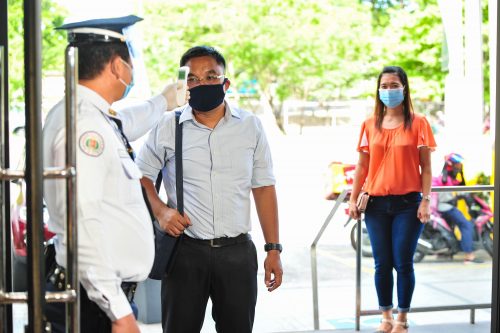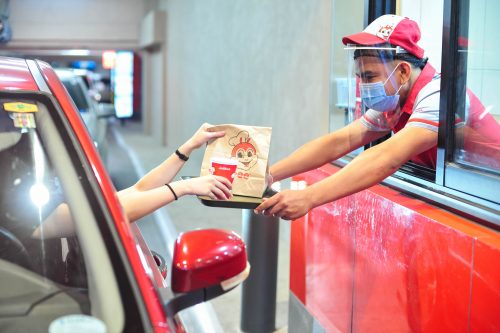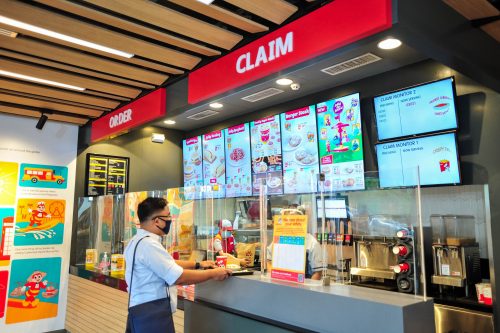As the world adapts to a “new normal” due to the global pandemic, the country’s number one fast food chain Jollibee has been gearing up to go the extra mile to ensure the safety of its customers while continuing to deliver quality food and service.
As Jollibee re-opens more of its stores and resumes dine-in services in select areas, it has intensified the implementation of safety measures and sanitation protocols for its employee and customers.

The customer safety journey starts with the crew and store preparations. All store team members are required to have their temperature checked prior to entry, and while inside – are mandated to wear full protective gear, observe physical distancing, and practice regular handwashing and sanitation. The entire store – including store fixtures and utensils – undergo intensive cleaning and sanitation before, during and after business operations. Team members are also given vitamin supplements to boost their immune system and telemedicine support to immediately attend to their health needs. This will ensure that they are all healthy and fit to provide the best service to customers, the Alagang Jollibee way.

Customers go through a 3-step safety check before entering the store: one – stepping on disinfectant mats; two – strict wearing of face masks and three – checking of temperature. Door handles, and other store fixtures and surfaces are disinfected every thirty (30) minutes. For stores with Self-order kiosks or SOKs, they make sure that these SOKs are also sanitized before and after use. Stringent safety protocols are also in place for food preparation and handling.



Jollibee has also installed counter guards at the main counter as an additional safety precaution for customers and cashiers during order taking. The counter guards will soon be available in all Jollibee stores nationwide. In addition, it plans to install table guards on dining tables as an additional safety measure for dine-in customers. Jollibee has also placed markers across their entire store layout – from floor markers, table markers, to seat markers so customers are consistently guided to maintain at least 1-meter distance when queuing and 2-meter distance for dine-in.

To make sure all protocols are properly adhered to, Jollibee has assigned official Alagang Jollibee Hygiene Ambassadors in every store. They take the lead and oversee the strict implementation of safety precautions, such as wearing of safety gear, physical distancing, no-touch and cashless transactions, and intensified cleaning and sanitation.
Jollibee has also dedicated a priority lane for frontliners, giving medical and healthcare workers, police and military personnel, and other people involved in providing necessities and essential services, with preferential access when ordering in stores.
As a way of welcoming back diners to its stores while ensuring them that their safety remains the brand’s top priority, Jollibee is set to release a video entitled “Beeda ang Safety at Saya”. In true Jollibee fashion, the video captures the high level of safety standards that Jollibee adheres to – from safety checks for employees and customers, to cleaning and sanitation measures and in-store safety signages and markers. All of these measures are in compliance with the health protocol guidelines set by the Department of Trade and Industry for dine-in restaurants and fastfood establishments.

“We pride ourselves with our high standards of quality, safety, and cleanliness. And now as we transition to a new normal, we further intensified our safety protocols to ensure that the safety and welfare of both our employees and customers will continue to be prioritized. As we strive to bring joy through our food during this challenging time, rest assured that we will take care of our customers and people in the best possible way,” said Ferns Yu, Jollibee Philippines President.
This same high standard of safety is also applied to Jollibee’s Delivery service, wherein measures such as intensified sanitation, physical distancing and no touch transactions have been implemented since the start of the ECQ period.

